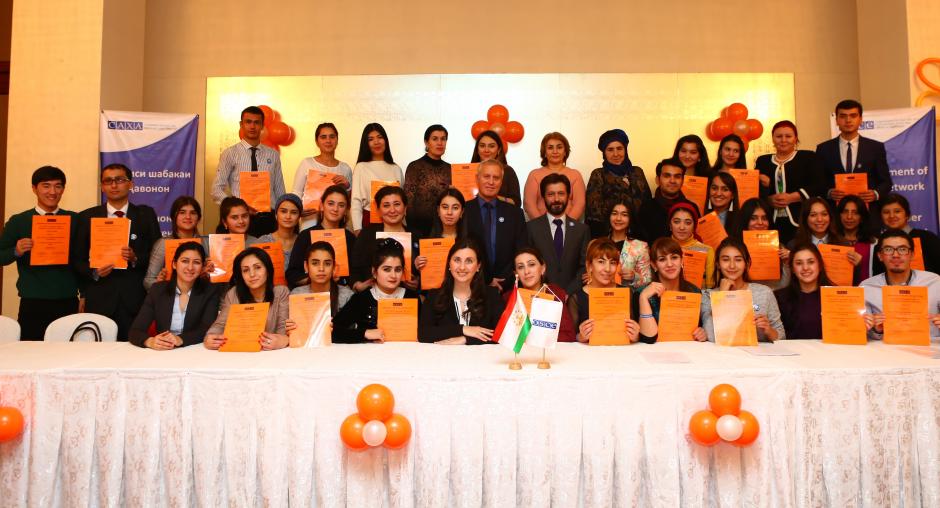OSCE Programme Office in Dushanbe establishes youth network of gender champions

A youth network of gender champions, composed of 45 young adults, including 15 men and 30 women, was established by the OSCE Programme Office in Dushanbe on 29 November 2017 in Tajikistan.
The network gathers members and activists of the youth wings of different political parties and civil society organizations from Dushanbe and the Khatlon and Sughd regions of Tajikistan.
The participants were selected based on their commitment and motivation during various capacity building activities organized by the OSCE Programme Office in Dushanbe over the past two years such as a mentorship programme and other training courses. During these events, the participants showed exceptional initiative in promoting gender equality in their communities.
“The OSCE is committed to mainstreaming gender equality, as stipulated in our Action Plan for Gender Equality from 2004 and various Ministerial Council Decisions. Over the past two years here in Tajikistan, we have built positive relationships with these 45 young men and women from Tajikistan and offered them advice and support on how they can advocate for gender equality, tackle gender stereotypes, and retain traditional moral values while doing so,” said Scott Kearin, Head of the Human Dimension Department of the OSCE Programme Office in Dushanbe.
Vesna Ivanovikj-Castarede, Gender and Anti-Trafficking Officer at the Programme Office said: “We chose to establish a network of 45 motivated young adults during the 16 Days of Activism against Gender-based Violence campaign and we handed out orange certificates to symbolize a better future without violence, for all women and girls. These young people will have a big role in creating a future of equal opportunities for all. In addition, the 15 young men from this network will join Tajikistan’s MenEngage network - the OSCE-supported network that is aimed at engaging men and boys in preventing and combating violence against women.”
The Office will continue supporting this network as its members mentor their peers in the rural regions, take an active part as co-trainers on tackling gender stereotypes that impede the advancement of women and girls, and address the underrepresentation of women in leadership positions and decision making processes, education for girls, domestic violence and other relevant matters.
